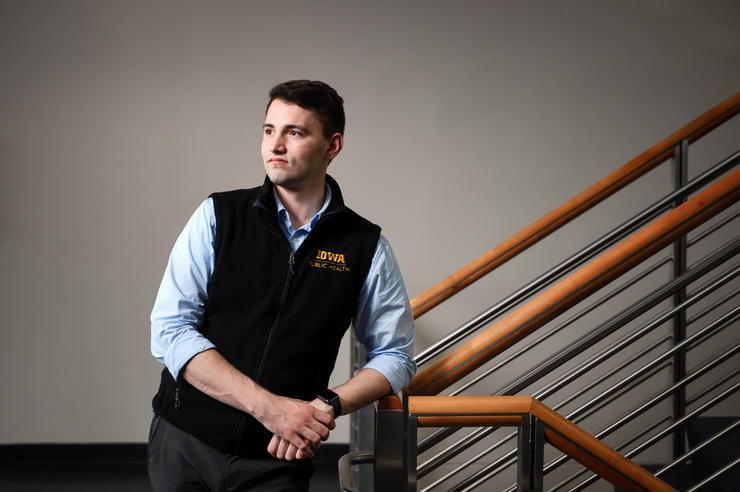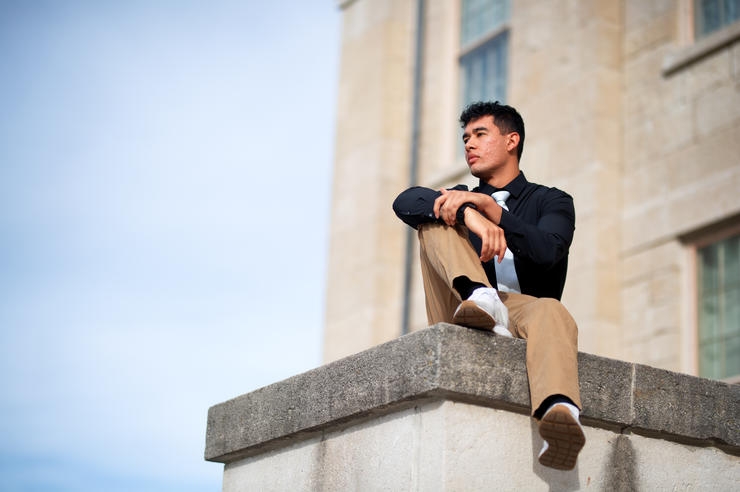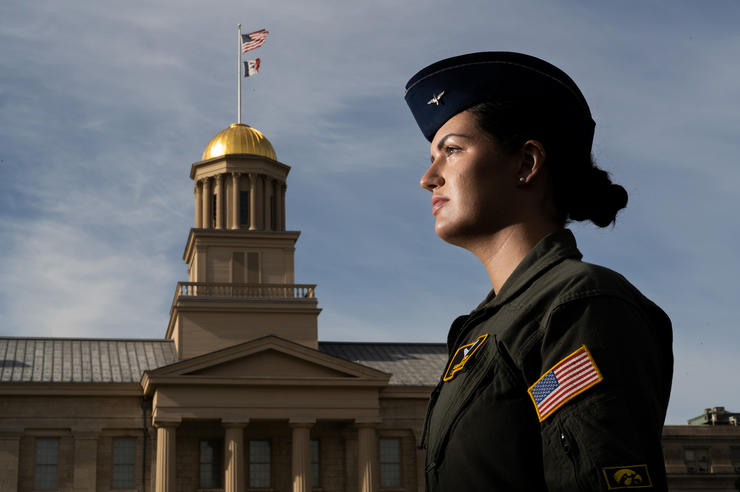Air Force ROTC cadet breaks barriers for those who follow
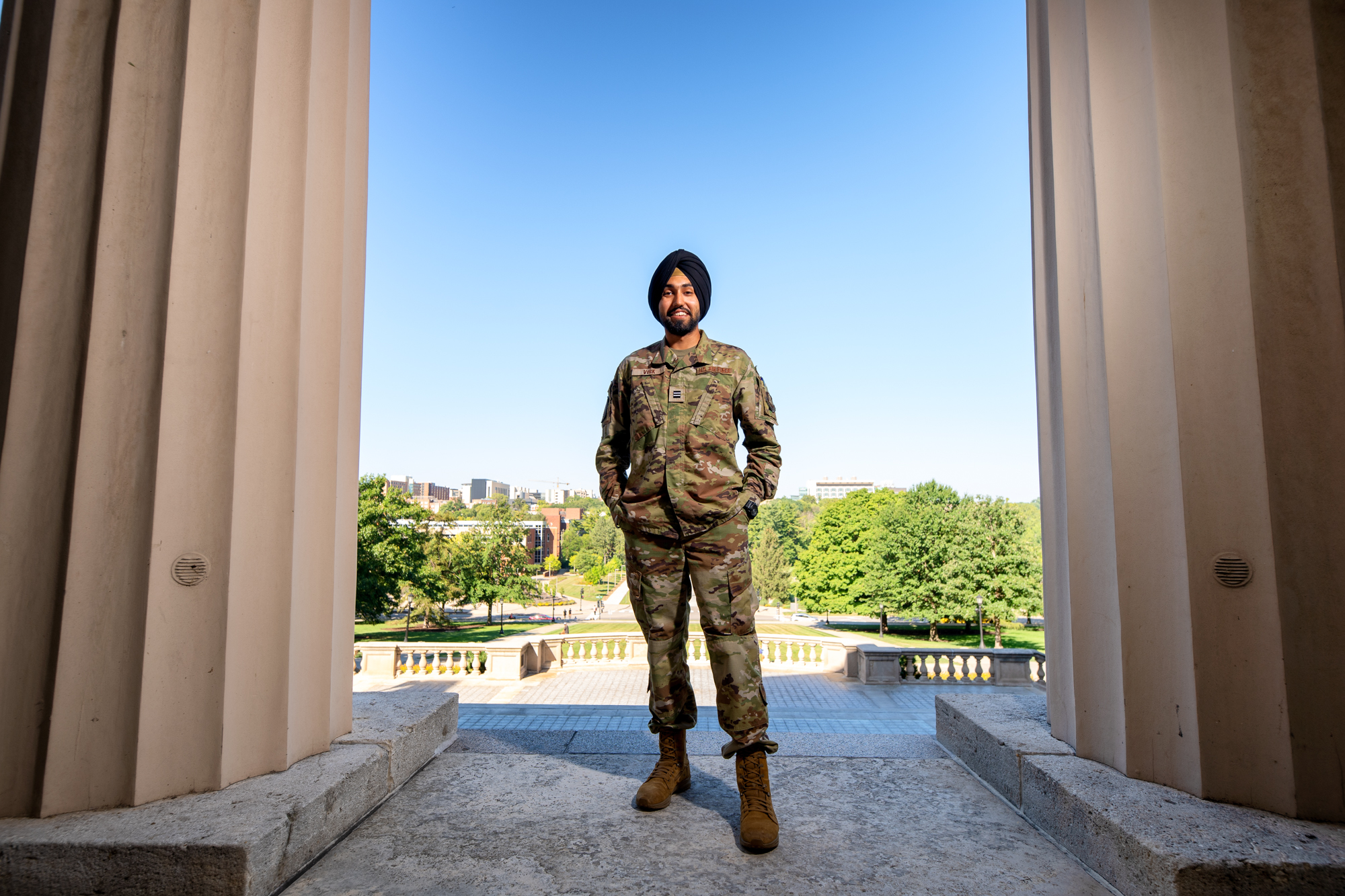
Growing up, Gursharan Virk dreamed of becoming a fighter pilot.
But as he got older, the third-year student at the University of Iowa worried he might have to choose between his Sikh faith and his dream career.
Instead, with help from UI’s Air Force ROTC Detachment 255, Virk became the first Sikh Air Force cadet in U.S. history allowed to wear the turban, beard, and bracelet that are sacred religious symbols after he petitioned the military branch asking that he be allowed to incorporate them into his military uniform.
Once Virk completes his training, the bioinformatics major will become the first openly practicing Sikh commissioned officer, U.S. Air Force representatives say.
Check out some highlights in Iowa’s long history as a trailblazer:
- 1860: Iowa was the first public university to admit men and women on an equal basis.
- 1870: Iowa opened the first co-educational medical school in the U.S.
- 1932: Iowa started the first educational television station in the world
- 1940: Iowa was the first public university to award the Master of Fine Arts degree.
- 1970: Iowa was the first public university to officially endorse an LGBTQ+ student group.
- 1992: Iowa was the first public university to provide benefits coverage to domestic partners of employees.
- 2021: Iowa became the first Power Five school to add a women’s wrestling program.
“You shouldn’t have to choose between what you want to do for your career and your faith,” Virk says. “I am so proud to be the first person in the country and to make this possible for everyone who will come after me. I had doubts about whether or not I was going to be able to do this. But I hope people don’t have those doubts anymore.”
Virk is on the vanguard of a changing U.S. military, which over the past decade has become more accommodating of its members’ religious beliefs. He is not the first openly practicing Sikh enlisted military member, but is a trailblazer as an Air Force ROTC cadet and future officer. An estimated 100 openly practicing Sikhs are enlisted in the U.S. Army and U.S. Air Force, according to the Sikh Coalition, a nonprofit that advocates for religious parity.
Col. Corey Ramsby, the commander overseeing the nation’s Air Force ROTC, says the changes are part of efforts to develop and showcase a wide range of talent.
“Cadet Virk is just the latest example of the shift in our culture that has allowed us to open that aperture wider than we ever have before,” Ramsby says.
For Sikhs, wearing a turban is a visible sign that they are there to help those in need. The kara—a bracelet Virk wears on his right wrist—and beard are symbols of religious devotion. Virk says being able to take his heritage and pride into the Air Force while studying to become a pilot has inspired him.
“Once I wear the turban, I’m representing a whole community,” he says. “It motivates me to get up and work that much harder.”
Iowa’s Air Force ROTC detachment is one of the smallest in the nation, but its cadets rank among the elite in national competition, and its alumni include retired four-star Gen. Charles A. Horner. Virk is among the top leaders and expects to learn in the spring whether he’s been selected for pilot training.
“Virk is spectacular,” says Lt. Col. Matthew Youmans, an aerospace studies professor who leads Iowa’s Air Force ROTC. “For him to be first in the nation, I think it kind of shows the world what the University of Iowa can do, and what we bring to the table and the kind of people that we attract.”
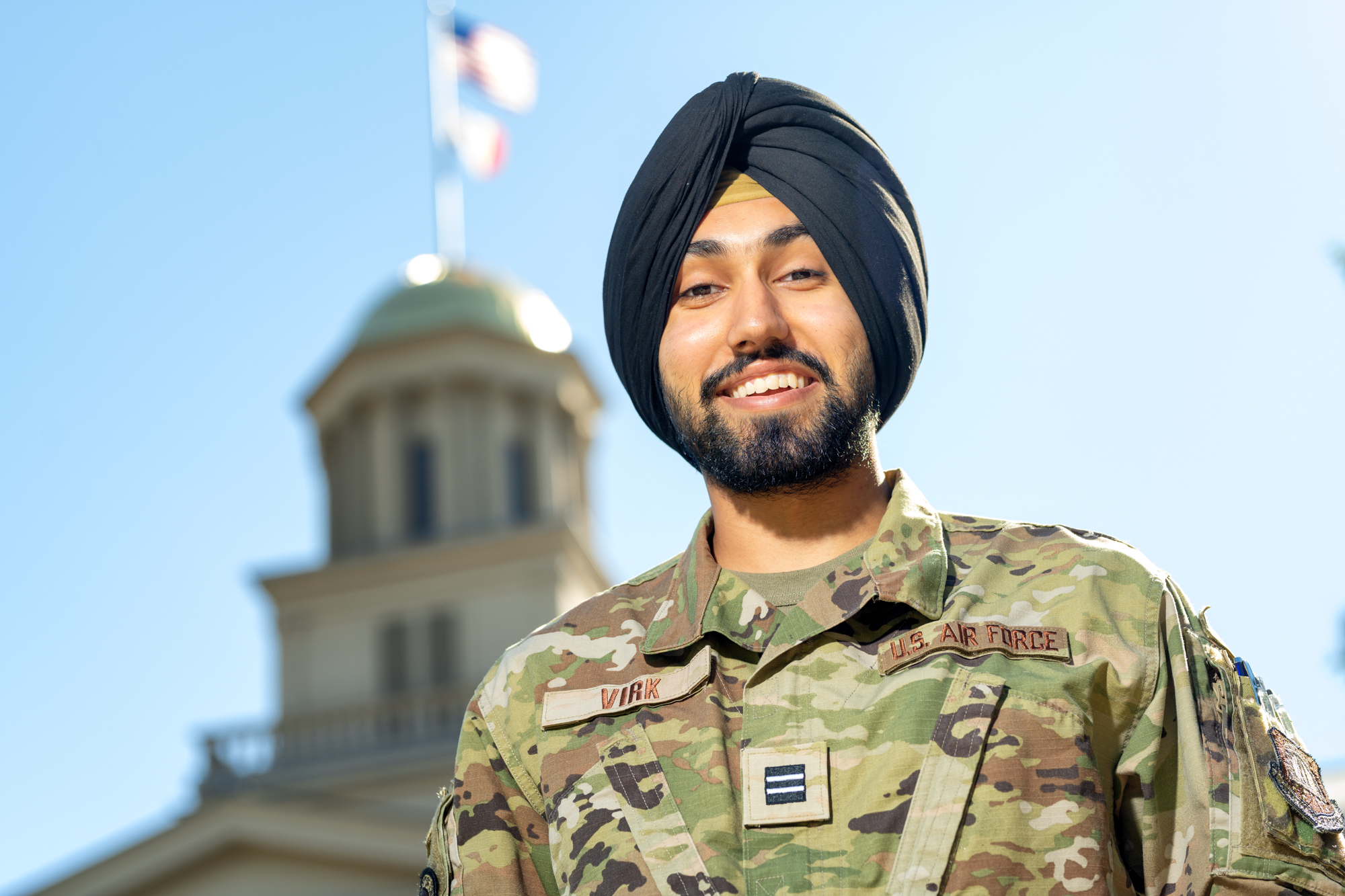
“You shouldn’t have to choose between what you want to do for your career and your faith. I am so proud to be the first person in the country and to make this possible for everyone who will come after me.”
Born in Des Moines, Iowa, Virk’s family moved to the city of Chandigarh, the capital of India’s Punjab state, while he was very young. He attended the prestigious Lawrence School (motto “Never give in”), a boarding school with a long tradition of training the next generation of India’s military leaders. His father is a retired Indian army colonel.
Virk returned to the U.S. for the start of his junior year of high school, and he attended Waukee High School just west of Des Moines. Unable to visit colleges during the COVID-19 pandemic, Virk chose Iowa because of the strength of its computer science program.
The summer before classes began in fall 2020, he reached out via Instagram to Iowa’s Air Force ROTC detachment, which encouraged him to join and apply for a uniform accommodation. It was granted in December 2021 and publicly announced in July.
“Being the first at something, sometimes it comes with a lot of struggle,” says Virk. “My way has not been like that. I had a great support system, especially in my (ROTC) class.”
That class of seven has become a second family, he says. The members decided to live in the same apartment building, and they typically eat breakfast together after weekday morning workouts. The group recently traveled to Maxwell Air Force Base in Montgomery, Alabama, for training, where six finished at the top of their groups and four—including Virk—ranked in the top 10% of the nearly 1,600 cadets.
“It’s one of the best growth environments I’ve ever been in,” says Virk, who also has begun introducing the group to epic, over-the-top Indian action movies. “It’s a competitive program, but we’re all cheering each other on.”
Outside of class and ROTC, Virk works on the ITS Help Desk and is involved with UI’s veterans association, IVETS, and the Indian Student Association. He’s also an Alpha Tau Omega fraternity member, an On Iowa! leader, and an ROTC flight commander, helping 10 first-year cadets acclimate to campus.
“I don’t want to look back and wish I’d done more,” he says. “If you want something, you should go for it.”
